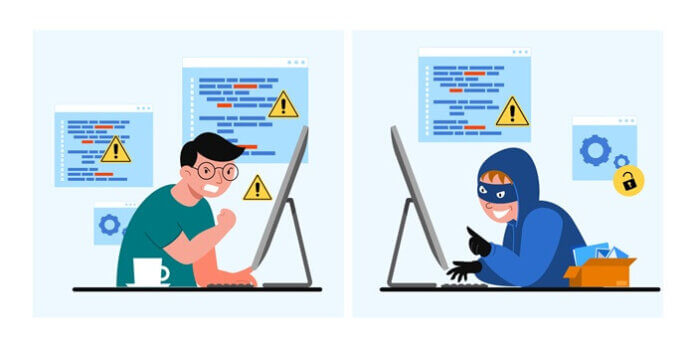Presenting another person’s code as one of your own without giving due credit or permission is known as programming plagiarism.
It is a grave ethical and intellectual transgression that carries substantial repercussions, such as academic sanctions and harm to one’s livelihood.
This essay examines the idea of programming plagiarism, its ramifications, and practical preventative measures.
Understanding Programming Plagiarism
Programming plagiarism is the practice of using, duplicating, or copying another person’s code without giving due credit or permission.
It includes stealing code straight from websites, altering code without authorization, and turning in another person’s work as one’s own, among other types of academic dishonesty.
Plagiarism in programming not only infringes upon the rights to intellectual property but also damages the reputation of those who write code and impedes the education of future developers.
Consequences of Programming Plagiarism
Developers who commit programming plagiarism risk serious repercussions on both a personal and professional level.
Plagiarism in academic contexts can result in failing marks, academic suspension, or even expulsion from the university.
It can harm one’s reputation in a professional setting, lead to a copyright infringement lawsuit, and impede chances for career progress.
Programmers who steal code also run the risk of jeopardizing the security, dependability, and quality of software programs, which puts end users in danger.
Types of Programming Plagiarism
Plagiarism in programming can take many different forms, each with its own set of difficulties and moral quandaries.
Programming plagiarism frequently takes the form of direct code copies from online sources, code modifications done without giving due credit, and collaborative work done without acknowledging individual efforts.
Additional examples include reusing projects or assignments between different classes, utilizing code snippets without authorization, and hiring outside companies to do coding work covertly.
Strategies to Avoid Programming Plagiarism
Developers must take preventative steps and use ethical coding practices in order to avoid coding plagiarism.
The following are some practical tactics to avoid programming plagiarism:
1. Recognize and Use Correct Citation Practices:
When using third-party libraries or code snippets in your projects, make sure to provide due credit.
To recognize the efforts of other developers, adhere to standard citation styles and add citations to the source.
2. Write code from scratch:
Try to avoid using templates or pre-existing solutions by writing code from scratch whenever you can.
Creating code on your own not only improves your programming abilities but also lowers the possibility of unintentionally copying someone else’s work.
3. Use Code Plagiarism Checkers:
Check your code for similarity with pre-existing codebases by using code plagiarism checker tools and technologies. By using these tools, you can make sure that your code is unique and maintains its integrity while also spotting any instances of plagiarism.
4. Document and Track Sources:
Keep a thorough record of all the code snippets, libraries in general, and resources you utilize in your projects. Don’t forget to include the source URL, publication date, and author’s name.
You may quickly track down the source of code components and ensure correct attribution by keeping up-to-date documentation.
5. Seek Permission for Reuse:
Make sure you have the original author’s or copyright holder’s express consent before reusing someone else’s code in your projects.
Acquire licenses or permits that allow code reuse, modification, and redistribution if the use constraints and attribution guidelines are followed.
Educational Resources and Support
In addition to rules, many educational institutions and programming communities offer extensive resources and specialized support services to help developers navigate ethical difficulties around programming plagiarism.
When in doubt or confronted with difficult moral decisions about the usage and attribution of code, developers can get insightful advice from mentors, teachers, or by participating in online forums.
Developers may make well-informed judgments and build a solid ethical basis for their programming processes by drawing on the richness of information and experience present in these groups, which can provide varied viewpoints.
Conclusion
Developers and software designers face serious ethical, intellectual, and professional difficulties when it comes to programming plagiarism.
Developers may maintain integrity, promote creativity, and support a culture of ethical behavior within the programming world by comprehending the notion of programming plagiarism, identifying its repercussions, and implementing proactive measures to prevent it.
The authenticity and reliability of their work can be guaranteed, and developers may foster a climate of trust, cooperation, and creativity in the software development industry by upholding ethical coding standards and honoring intellectual property rights.

